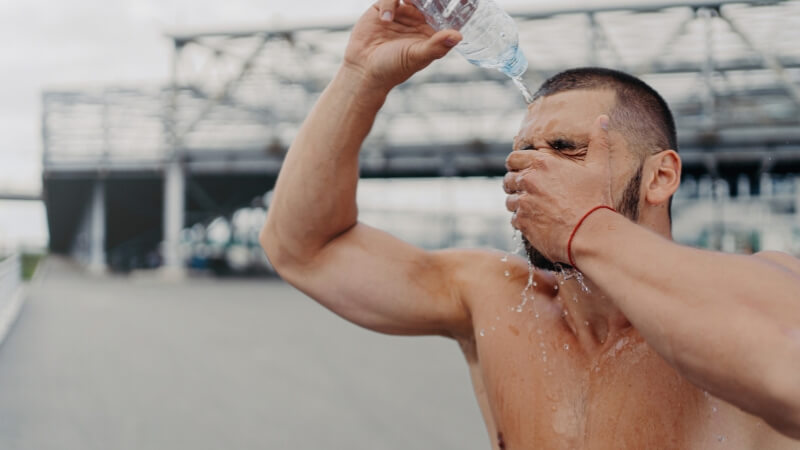Dehydration symptoms can sneak up on you if you’re not careful. Recognizing the signs of dehydration early can prevent serious health issues and keep you feeling your best.
In this article, we’ll explore the key dehydration warning signs and common causes of dehydration. Staying informed about these symptoms is crucial and often the first step towards avoiding dehydration.
What is Dehydration?
Dehydration occurs when your body loses more fluids than it takes in, disrupting the balance needed for normal functions.
This imbalance can be due to various factors, from not drinking enough water to excessive sweating or medical conditions. Understanding the dehydration signs and symptoms is vital for maintaining good health.
Common Signs of Dehydration
Recognizing the signs of dehydration can help you address the issue before it becomes severe.
Here are some common dehydration symptoms to watch out for:
Dehydration often starts with a dry mouth and an intense feeling of thirst, signaling that your body needs more fluids. Alongside this, dark yellow or amber urine indicates inadequate hydration, whereas light-colored urine usually signifies adequate hydration. Fatigue and dizziness can also occur when your body can’t perform optimally due to insufficient water intake.

Additionally, dry skin and chapped lips are noticeable dehydration signs, as hydrated skin is typically supple and moist. A decrease in urine output is another indicator, showing that your body isn’t getting enough fluids. Headaches are common as well, stemming from your body’s struggle to maintain normal functions without sufficient water.
Finally, muscle cramps can occur, especially during or after exercise, highlighting the importance of staying hydrated to maintain electrolyte balance.
Causes of Dehydration
Understanding what causes dehydration can help you take proactive steps to prevent it. Here are some common dehydration causes:
Not Drinking Enough Water
The most straightforward cause of dehydration is simply not drinking enough water. Make it a habit to safe drink water regularly throughout the day.
Sweating
Whether from exercise, hot weather, or a fever, excessive sweating can lead to significant fluid loss. It’s important to replace these lost fluids by drinking plenty of water.
Illness
Certain illnesses, especially those that cause vomiting or diarrhea, can lead to rapid fluid loss. It’s crucial to stay hydrated if you’re sick.
Hot Temperatures
Hot and humid weather increases the likelihood of dehydration. Be mindful of your water intake during the warmer months or if you’re spending a lot of time outdoors.
Physical Activity
When you exercise, you lose fluids through sweat. Ensure you’re drinking enough water before, during, and after physical activity to stay hydrated.
How to Prevent Dehydration

Preventing dehydration is easier than treating it. Here are some tips to keep you well-hydrated:
- Drink Plenty of Water: The simplest way to prevent dehydration is to drink water regularly. Aim for at least eight 8-ounce glasses a day, and more if you’re active or in a hot environment.
- Eat Water-Rich Foods: Incorporate fruits and vegetables with high water content into your diet, such as cucumbers, watermelon, and oranges.
- Monitor Your Fluid Loss: Be aware of how much you’re sweating and losing through other means, and adjust your water intake accordingly.
- Avoid Excessive Alcohol and Caffeine: Both alcohol and caffeine can increase urine output, leading to dehydration. Limit your intake of these beverages and balance them with plenty of water.
- Use Hydration Drinks: For those who are active or experiencing fluid loss from illness, consider using oral rehydration solutions or sports drinks to replace lost electrolytes.
Recognizing Dehydration Symptoms
Understanding and recognizing dehydration symptoms is key to staying healthy. From dry mouth to muscle cramps, being aware of these signs can help you take action before dehydration becomes severe.
Remember to drink water regularly, especially in hot weather or during physical activity. By staying hydrated, you’ll ensure your body functions optimally and feel your best every day.
